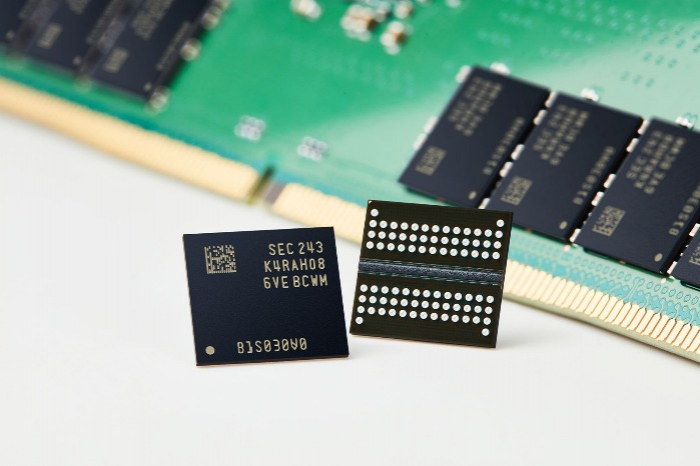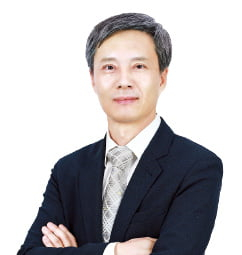Korean chipmakers
S.Korea needs bold investment to keep K-chip supremacy: SNU scholar
The home of the world’s top two memory chip makers needs to focus on reinforcing its strength amid America’s advance
By Mar 06, 2023 (Gmt+09:00)
2
Min read
Most Read
LG Chem to sell water filter business to Glenwood PE for $692 million


Kyobo Life poised to buy Japan’s SBI Group-owned savings bank


KT&G eyes overseas M&A after rejecting activist fund's offer


StockX in merger talks with Naver’s online reseller Kream


Mirae Asset to be named Korea Post’s core real estate fund operator



The South Korean government and the private sector must commit to more generous and comprehensive support for the country's memory chip industry if it wants to maintain its dominance in the face of America’s rally to advance its semiconductor industry, said a renowned engineering professor at Seoul National University (SNU).
“Korea can survive the competition only if its homegrown chip products from state-of-the-art manufacturing facilities prove to be profoundly superior to Micron's,” Hwang Cheol-seong, a distinguished professor at SNU’s Department of Materials Science and Engineering, told The Korea Economic Daily on Sunday.
One of the country’s preeminent engineering scholars, Hwang's primary research fields include semiconductor devices.
He warned the US government would soon start giving its leading memory chip maker Micron Technology Inc. outright federal support, after the Biden administration officially announced a plan to regain control of the memory chip industry, as described in guidelines to the CHIPS and Science Act unveiled last week.
“This will directly challenge Samsung Electronics and SK Hynix, as a real threat,” said Hwang.
In the guidelines, the US government made clear its ambition to regain global hegemony by 2030 in four core chip technologies: high-capacity memory chips, advanced chip packing, chip processing and the creation of large-scale chip clusters.
For decades, the global memory chip industry has been dominated by Korean and Taiwanese chip companies, after the US gradually lost ground over its lackluster manufacturing competitiveness.
In particular, Korea’s top memory chip makers, Samsung Electronics Co. and SK Hynix Inc., have been leading the global memory chip market with dominant leadership in DRAM and NAND flash.
“It is time for Korea to think about ‘where it can excel,' not ‘what it wants to do,' in the semiconductor sector,” said Hwang.

“Semiconductor professors are changing their areas of study to AI, bio, energy and environment,” said Hwang. “There are no scholars available to join universities' semiconductor departments.”
He blamed stingy financial support from the government and private sector for the shortage of chip scholars.
Hwang called on the Korean government to enlarge its budget for advancing the country’s chip industry and bump up support to universities.
Write to Jeong-Soo Hwang at hjs@hankyung.com
Sookyung Seo edited this article.
More to Read
-
 Korean chipmakersUS CHIPS Act threatens Samsung, SK Hynix’s memory supremacy
Korean chipmakersUS CHIPS Act threatens Samsung, SK Hynix’s memory supremacyMar 02, 2023 (Gmt+09:00)
4 Min read -
 Korean chipmakersSamsung, SK Hynix face cap on tech level of chips made in China
Korean chipmakersSamsung, SK Hynix face cap on tech level of chips made in ChinaFeb 24, 2023 (Gmt+09:00)
3 Min read -
 Korean chipmakersSamsung leader eyes memory chip packaging investment
Korean chipmakersSamsung leader eyes memory chip packaging investmentFeb 17, 2023 (Gmt+09:00)
2 Min read -
 Business & PoliticsKorean CHIPS Act revision hits roadblock as opposition lawmakers balk
Business & PoliticsKorean CHIPS Act revision hits roadblock as opposition lawmakers balkFeb 15, 2023 (Gmt+09:00)
3 Min read
Comment 0
LOG IN


